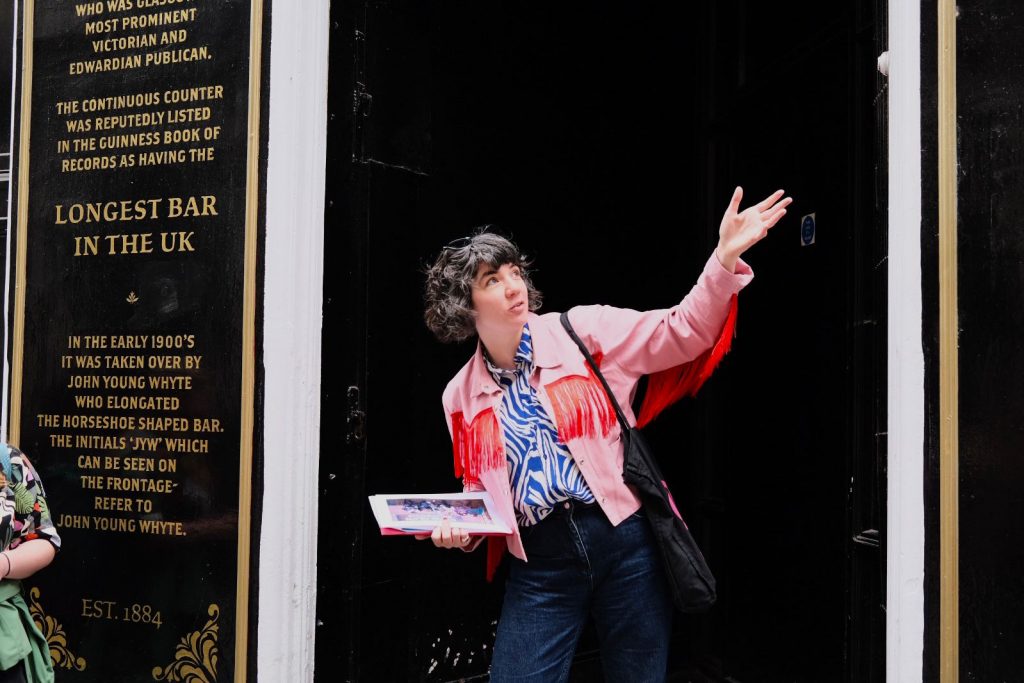
THURSDAY 25TH APRIL 2024, 6.00PM BST
AUGUSTINE UNITED CHURCH, 41 GEORGE IV BRIDGE, EDINBURGH AND ONLINE
This will be a hybrid event hosted by the Society of Antiquaries of Scotland which will take place both in Augustine United Church and online. Immediately after the lecture there will be a drinks reception. This event is free and open to all.
Lecture information
This event will feature two short 20 minute presentations given by Early Career Researchers/recent PhD graduates.
The Chornobyl Exclusion Zone is a palimpsest of early medieval sites: the impact of the war in Ukraine on scientific and rescue excavations by Dr Alla Kurzenkova FSAScot, University of Glasgow
The Chornobyl settlement has been written into the landscape, intertwined with the human history from the end of the 10th – 11th centuries to man-made crises such as the Chornobyl disaster (1986), the creation of the Chornobyl Exclusion Zone (CEZ), and the full-scale war in Ukraine, which has prevented any further archaeological excavations there. Since the end of the twentieth century the Chornobyl landscape has lost its human touch and turned into a memory of an ‘abandoned landscape’. It embodied the emotions associated with the process of abandonment, where nature took over and began to cover the site, reviving it with new species of flora and fauna. It is crucial to reflect on how the human impact that left a long shadow on the Chornobyl settlement has, at the same time, reinforced the archaeological aspect of the settlement’s research a bit more than 16 years later. The Russian occupation of the area has made access to the sites more difficult, and the monuments themselves can be damaged by shell explosions and trenches. The level of preservation of most archaeological and cultural sites is currently unknown. All this has raised questions that need to be discussed: How should emotions be managed and what steps should be taken to preserve early medieval archaeological sites?
Alla Kurzenkova is from the Kyiv region in Ukraine and graduated from Vasyl’ Stus Donetsk National University with a master’s degree in History in 2011 (Donetsk, Ukraine), where she later worked as a Senior Lecturer from 2016 to 2019. In 2015, she completed her PhD on the study of Early Medieval Scandinavian runic inscriptions at Bohdan Khmelnytsky National University. Before the full-scale war in Ukraine, she was engaged in excavations in the city of Chornobyl and moved to Glasgow in June 2022 where she has since been acting as an Affiliate Researcher in the department of Archaeology at Glasgow University under the British Academy’s Researchers-at-Risk scheme.
Refugee histories of Scotland by Ms Katherine Mackinnon, University of Glasgow
From the Berber Roman governor who built the Antonine Wall, to Lithuanians who mined Lanarkshire coal, to the Belgian WW1 refugees who worked as clippies on Glasgow trams, refugees and migrants have been part of the fabric of Scottish society since before Scotland even existed. Despite this, records of refugee experiences have been rare. Oral histories of refugee lives can provide great insight into experiences of Scottish culture, society and history from the perspective of those who have made their home here.
Katherine Mackinnon is a part-time PhD researcher working on an oral history of refugee lives in Scotland from the 1970s to the present day. In the process of recording life experiences, the project also seeks to develop and trial methodologies for undertaking ethical oral history with refugees. Alongside her PhD, Katherine is a writer and workshop facilitator, working with groups to read and write poetry, and explore creative ways of documenting and communicating their histories.
ELECTIONS
This event will also feature the Spring Election of new Fellows to the Society outside of our Anniversary Meeting on St Andrew’s Day. Information on the applicants and how to vote in this election here; ballots are sent out to those for whom we do not have an email address. Voting is now closed.
You will need to be logged into the website as a Fellow (use the red Fellows Login button at the top of the Society webpages). This will give you the opportunity to vote online for new Fellows.
April 2024 Lecture Registration
House Rules
The Society has a zero-tolerance policy on harassment and bullying.
All attendees are requested to act with respect to one another during this hybrid event.
Anyone making comments which we believe to be inappropriate (e.g. offensive or abusive) will be removed from the event immediately. Equivalent procedures (e.g. with regard to spam) will apply online.
Accessibility
The main entrance to the church is up four steps with a handrail.
Step free access is available via a door to the right of the building – please ring the bell for attention. Please note there is a tight turn in this passageway.
A standard accessible toilet is available on the ground floor and lower level (accessible via lift).
The venue (AUC sanctuary) has a hearing loop included.
Assistance dogs are allowed inside the venue.
If attending via Zoom, captions are included.
You can find further information on Accessibility here.
Help us: champion research; stimulate discussion; enhance public understanding; and share our extraordinary heritage. Donate directly to the Society now.